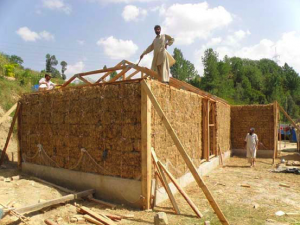
We all want to do our best to live more sustainably but preferably without costing our comfort. Thankfully, as technology develops, there are more and more ways in which we can take a greener approach to heating our homes without compromising on warmth.
Even if you are happy with your current type of heating system, it’s a good idea to make sure it’s still up to scratch. Old boilers or furnaces are even worse for the environment, since as they get older they become less efficient, meaning they use up more energy. If you’re ready to update your boiler and reduce your carbon footprint (as well as your energy bills!).
If you’re not sure yet about which kind of boiler or heating system you’d like for your home, we’ve got you covered! Below are some of the most eco-friendly options currently available for you to consider:
Heat pumps
Through the transfer of heat to or from an external source, heat pumps offer low-carbon heating and cooling for your home. There are numerous types of heat pumps from which you can choose for your home. They all function in a similar way, but their use of different heat sources affects each one’s performance and cost.
Air source heat pumps and ground source heat pumps are the most popular types. Heat pumps of all varieties are extremely effective, with levels between 300 and 400 percent.
Air source heat pumps are the cheapest of the two and also require the least amount of space. They work best in milder climates, since in colder weather they have to work harder to maintain the same temperature which will in turn increase the running costs.
On the other hand, ground source heat pumps can still work efficiently despite cold weather. This is because they are installed underground where the temperature is relatively constant all year round. Unfortunately, this does come at a cost though, since ground source heat pumps are one of the most expensive options and require a lot of space.

Micro-CHP Systems
So what exactly is a micro-CHP system? Micro-CHP (combined heat and power) technology is able to produce both electricity and heat at the same time. This heating system has really taken off in Japan, where around 230,000 are currently in operation. And as the technology develops, this popularity is likely to increase around other parts of the world.
Micro-CHP systems are not considered to be a renewable energy system, as they are typically powered by fossil fuels. However, they are still viewed as a low carbon alternative to many other types of heating systems, therefore, reducing your carbon footprint.
In addition to this, green energy suppliers that provide 100% renewable energy are becoming more common, so an alternative to powering a micro-CHP system with fossil fuels may already be available to you.
Biomass Boilers
Another alternative to traditional unsustainable heating systems is a biomass boiler. Biomass is biological material obtained from living organisms such as plants. Biomass can be used in a variety of ways to produce heat: directly via combustion, or indirectly after being converted into another type of fuel such as methane, ethanol, or biodiesel.
If you already have a gas or oil boiler, switching to a biomass boiler will be simple because it operates similarly but with less carbon production.
If you decide to use a biomass boiler, it’s vital to keep in mind that you will need room in your home to store the fuel and that the cost of the fuel may differ depending on where you’re located.
Electric Combi Boiler
Another easy switch to make is an electric combi boiler. New boiler costs can vary depending on many factors, but electric combi boilers tend to be one of the cheaper options as they don’t require any extra tanks or cylinders. This also means electric combi boilers fit well with homes that want to make the most of their space and don’t have a high hot water demand.
Electric boilers also have efficiency ratings of 99-100%, which is higher than your average gas boiler or furnace. With that being said, it’s important to make sure that your electricity is coming from a green supplier so you know that it is actually coming from a renewable source. Alternatively, you could also consider installing solar pv panels to your own home!



